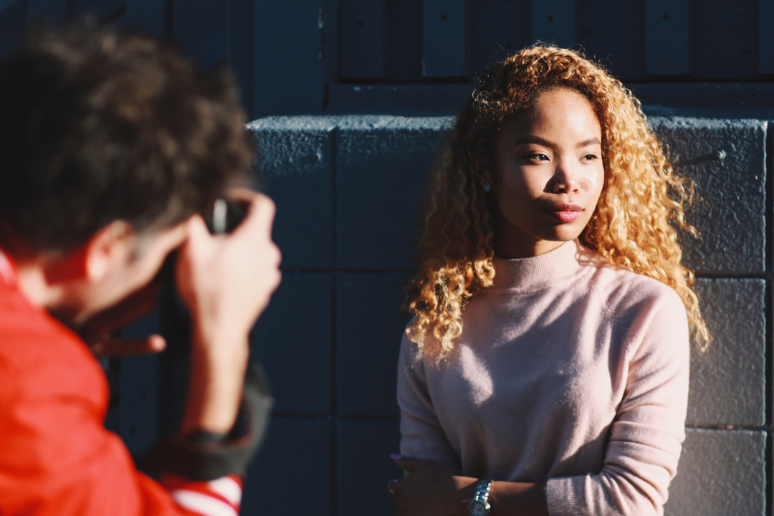Recently, American model Bella Hadid has been sued by photographer Timur Mishiev for posting a photo of herself to her Instagram account, according to Independent Online. The model, who has 9 million followers, posted a photo of herself in a Tommy Hilfiger hat in September. Photographer Mishiev claims that the photo is a violation of his copyright and is asking “unspecified damages.”
Hadid is one of many celebrities and influencers who have gotten into legal trouble for posting certain photos on their Instagram pages. In many cases, they have been sued by photographers for copyright infringement for posting photos of themselves that the photographers had taken.
However, copyright infringement is only one of several legal issues that influencers may face. Here are some legal tips for Instagram influencers to consider to help protect themselves.
Do influencers have to disclose a relationship with companies that provide them with free, discounted products and services?
“You need to disclose material connections between you and the entity you are endorsing,” explains Brendan Healey, partner at Baron Harris Healey. Influencers need to disclose any relationships they have with companies that provide them with free or discounted products or services, along with any other notable relationships, such as family members working at the company. “Federal Trade Commission (FTC) views material connections pretty broadly; it’s fine to give an endorsement, but they want consumers to know,” Healey explains.
What constitutes a proper disclosure of that relationship?
“It varies, depending on the context of the endorsement,” Healey says. He gives the example of an influencer who gets a sweepstakes entry in exchange for an endorsement; the influencer could use hashtags like #contest and #sweepstakes. But the biggest issue is that the FTC wants the message to be prominent, Healey explains: “They expect the endorser to put consumers on notice that there is a material connection.”
Dave Lizerbram & Associates says on their blog, “Whether you’re an influencer, always include words like “#Ad,” “Sponsored,” “Promotion,” or “Paid ad” in the post. Every time. On every platform.” Thanking the company is not sufficient, the blog also notes.
Healey points out that the FTC has published several endorsement guides to help influencers navigate this area. Moreover, the FTC published a social media guide in November 2019. Healey recommends that people become familiar with them. After all, the FTC website notes: “As an influencer, it’s your responsibility to make these disclosures, to be familiar with the Endorsement Guides, and to comply with laws against deceptive ads. Don’t rely on others to do it for you."
Why can’t I post photos of myself that other people took?
Because the photographer owns the copyright. Healey notes: “You own your image, but the photographer owns pictorial expression of that image.” That’s how so many celebrities have ended up getting sued in the past few years; they’ve used other people’s copyrighted works without permission and/or compensation.
If you want to use a photograph that someone else has taken of you, “obtain permission from the copyright holder,” explains Jeff Gluck, Gluck Law Firm, P.C. That way you can avoid potentially expensive lawsuits.
Can I be liable for things I say about a company?
It depends on the situation. In recent years, we’ve heard of cases where companies have gone after people for leaving bad reviews. If there is a contract between the influencer and the company, and the influencer breaks the contract, then the company might have a case. However, without a contract, people are free to say what they want; it’s a risk companies take, Healey says.
However, Gluck notes that “yes, if [the statements] are false and/or defamatory.” Defamatory statements are damaging lies said to a third party, whether it is written or oral. For instance, SideWalker has a great example of an influencer who gets covered in mosquito bites but then claims that the hotel the influencer was staying in had bed bugs.
Should I create a company, like an LLC or corp., to protect myself?
Influencers may want to consider incorporating, depending on their particular circumstances. Incorporating means that you have a legal shield between yourself and your business if you get sued, creating what is known as the corporate veil between yourself and the corporate entity. There are also possible tax benefits for incorporation. Healey says that if the influencer works full time at the position, they may want to incorporate, but if it is a side gig, it may not be necessary.
However, creating the “corporate veil” requires more than just filing paperwork. For instance, you should have separate accounts for your personal and business finances, as a start.
When should I seek an attorney?
You might want to consult an attorney when you face “a formal agreement with a brand,” Healey says. These contracts can be lucrative but can be high stakes so it is advisable to have an attorney walk you through the contract so you know the terms and obligations within it. Moreover, you should consult an attorney if the brand is asking you to do something that you may be uncomfortable with as well, Healey notes.
Moreover, if you are sued for copyright infringement or failure to disclose a material connection, along with other issues, it would definitely be advisable to talk to an attorney.
 By Elisa Shoenberger,
By Elisa Shoenberger, 

